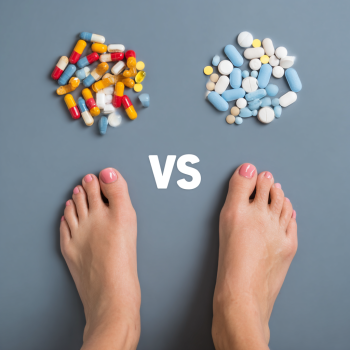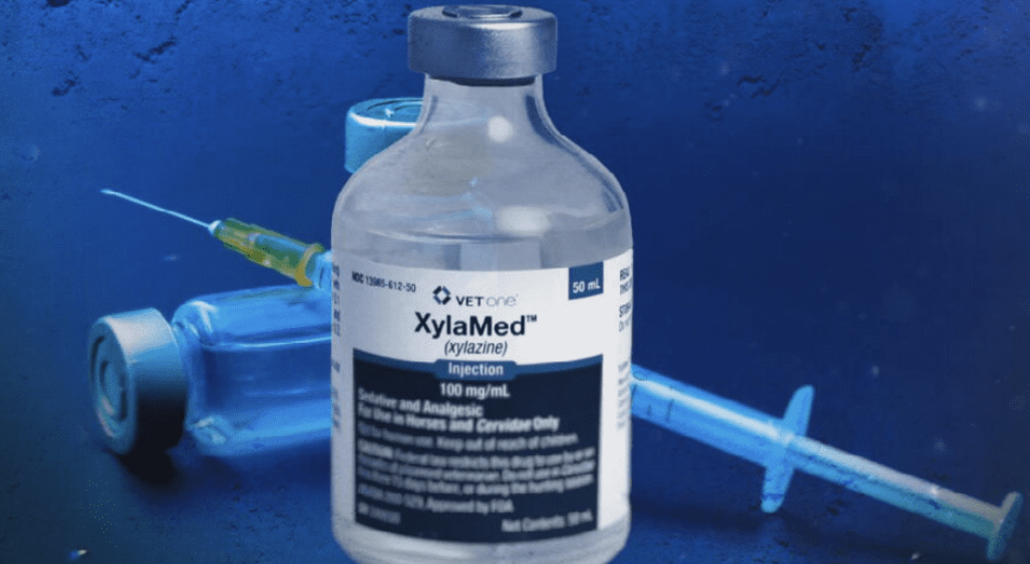Does Suboxone cause weight gain? Suboxone does not directly cause significant weight gain, but changes in appetite and lifestyle during recovery can lead to weight changes. This article explores these factors and their impact.
Key Takeaways
- Suboxone does not directly cause weight gain, but users may experience bloating and increased cravings that can give the impression of weight gain.
- Around 10% to 20% of Suboxone users report weight gain, while others may experience weight loss, highlighting the variability in individual responses to the medication.
- Lifestyle factors, such as decreased physical activity and unhealthy eating habits, significantly influence weight changes during Suboxone treatment, necessitating proactive weight management strategies.
Does Suboxone directly lead to weight gain?
When it comes to weight gain, Suboxone itself does not directly cause it. However, users often report a feeling of bloating or water retention, which can give the impression of gaining weight. In the early stages of treatment, some individuals might notice these changes, but they are typically due to temporary bloating rather than actual weight increase.
Long-term users have reported increased cravings for sugary foods, which can lead to weight gain as dietary habits shift. Additionally, individuals transitioning from heroin to Suboxone often experience a resurgence in appetite, which can result in weight gain as they start eating more nutritious meals.
While Suboxone cause weight is not officially recognized as causing weight changes, these indirect effects might contribute to the perception of gaining weight.

Reported weight changes: What do users experience?
Users of Suboxone report a wide range of experiences regarding weight changes. Some notice weight gain, while others experience weight loss during treatment. The variations depend on individual reactions to the medication and suboxone dosage and lifestyle changes.
These diverse experiences provide a clearer understanding of what users might encounter.
Suboxone and weight gain: How often is it reported?
Weight gain is a somewhat common side effect reported by Suboxone users. Studies indicate that approximately 10% to 20% of users experience weight gain during treatment. However, this is not a universal experience, and many users do not notice any significant changes in their weight.
Factors such as dosage and the duration of treatment can influence the likelihood of gaining weight. Some users report increased appetite, which can contribute to weight gain, while others might experience common symptoms like temporary bloating or water retention, leading to a perception of weight increase and possible side effects.
Suboxone and weight loss: A less common but possible effect
On the flip side, some individuals report weight loss when taking Suboxone. This effect is less common but does occur. Initial side effects like nausea or reduced appetite can lead to short-term weight loss as the body adjusts to the medication.
As treatment progresses, these weight changes often stabilize, and individuals might return to their normal weight. Factors like reduced appetite suppression and the normalization of metabolic processes play a significant role in these changes. The weight loss associated with Suboxone is typically temporary and varies greatly among individuals.
Why might Suboxone use impact weight indirectly?
Weight changes during Suboxone treatment are often due to indirect factors rather than the medication itself. These can include:
- Changes in appetite
- Reduced opioid cravings
- Lifestyle adjustments post-addiction
- Comorbid mental health issues.
These factors help explain the varied experiences of Suboxone users.
Appetite normalization after opioid use
Quitting opioids often leads to a resurgence of appetite, which was suppressed during active addiction. Starting suboxone treatment can normalize appetite, leading to increased food intake and potential weight gain. This is a common experience for those transitioning from opioid misuse to a more stable and healthier lifestyle, especially when considering how to treat opioid dependence suboxone through opioid addiction treatment and stopping opioids, particularly for those taking opioids.
The return of a healthy appetite is generally a positive sign of recovery, indicating that the body is healing and nutritional intake is improving. However, it can also lead to weight gain if not managed properly. Balancing this increased appetite with healthy eating habits can help avoid unwanted weight gain.
Metabolism and hormonal changes
Suboxone can influence metabolism indirectly. The medication itself does not slow down metabolism. However, opioid withdrawal can temporarily disrupt metabolic processes. This disruption might cause weight gain until the body stabilizes. The effects suboxone can have on metabolism and suboxone withdrawal are worth considering.
Additionally, the following factors related to weight gain have been observed in patients undergoing opioid treatment:
- Hormonal changes, such as increased leptin levels, could influence weight gain.
- Insulin resistance in some individuals alters how their bodies store fat and contributing to weight gain.
- Bloating or water retention, which can be mistaken for weight gain due to changes in fluid balance.
Mental health and emotional eating
Mental health significantly impacts weight changes during Suboxone treatment. Anxiety, depression, or mood changes post-recovery can lead to emotional eating, where individuals consume food for comfort rather than hunger. This behavior can result in weight gain if not addressed.
Cravings for sugary and processed foods can increase during treatment, contributing to unhealthy eating patterns and weight gain. Developing healthy coping mechanisms and seeking support for mental health issues can help manage emotional eating effectively.
How does Suboxone compare to other MAT medications for weight gain?
When comparing Suboxone to other medication-assisted treatments (MAT) like methadone and naltrexone, differences in weight-related side effects become evident. These differences can help patients and healthcare providers make informed choices about prescribed suboxone treatment plans involving two drugs and a drug.

Suboxone vs. methadone: Which has a higher weight gain risk?
Methadone is more commonly associated with weight gain compared to Suboxone, making this comparison important for those choosing a treatment plan. Studies suggest that methadone can negatively impact metabolism and increase appetite, leading to noticeable weight gain. In contrast, buprenorphine, the active component in Suboxone, does not show significant weight gain effects, especially within the first 12 weeks of treatment.
Individuals on methadone treatment may experience increases in body mass index (BMI), while those treated with buprenorphine tend to maintain their weight. This makes Suboxone a potentially better option for those concerned about weight gain during treatment.
Suboxone vs. naltrexone: Is weight-neutral possible?
As shown in the comparison of Naltrexone vs Suboxone, the former is often considered weight-neutral, making it a potential option for patients concerned about weight changes. This can make it a preferable choice for individuals worried about weight changes during treatment. Naltrexone’s effects on metabolism do not promote weight gain, and some studies even suggest it might reduce cravings for high-calorie foods.
Patients switching from Suboxone to naltrexone may experience a reduction in weight-related side effects. However, the choice between these medications should be based on individual health needs and discussed with a healthcare provider.
Can lifestyle factors during treatment increase weight?
Lifestyle factors play a crucial role in weight changes during Suboxone treatment. These factors include:
- Decreased physical activity
- Poor diet
- Quitting smoking
- Managing stress through unhealthy eating habits, which may also lead to increased weight.
Key strategies and factors for managing weight include:
- Engaging in regular exercise
- Maintaining a balanced diet
- Having a supportive environment
- Building social connections to help maintain healthier lifestyle choices during treatment to lose weight and achieve a healthy weight.
Monitoring these factors can help mitigate the potential weight gain associated with Suboxone use.
What to do if you're gaining weight on Suboxone
If you’re gaining weight while on Suboxone, don’t panic. Addressing weight gain involves consulting with a healthcare provider to explore potential causes and solutions.
Improving eating habits, increasing physical activity, and seeking support can help you stay active and make a significant difference.

When to consult your doctor
Significant weight gain during Suboxone treatment warrants a discussion with your doctor. They can help rule out underlying issues like fluid retention or other health concerns. If weight gain is persistent or accompanied by other symptoms, seeking medical advice is crucial.
Your doctor might review your dosage, consider switching medications, or refer you to a specialist for further evaluation. It’s essential to address any concerning side effects or allergic reactions promptly with your healthcare providers, including doctors.
Safe weight management tips during MAT
Managing weight safely during medication-assisted treatment involves evidence-based strategies:
- Working with a nutritionist to develop healthy eating habits and prevent potential weight gain.
- Engaging in regular physical activity.
- Maintaining balanced nutrition to promote overall health with weight loss medication and medication-based treatment.
Staying hydrated, monitoring portion sizes, and engaging in mindfulness practices like meditation or yoga can also help manage weight effectively. These strategies support a holistic approach to health during Suboxone treatment.
Bottom Line: Is Suboxone a cause of weight gain?
Suboxone does not directly cause weight gain in most users, but indirect lifestyle and metabolic factors may contribute. Early stages of treatment might involve water retention and bloating, creating a perception of weight gain. Long-term Suboxone use might increase cravings for sugary foods, indirectly affecting weight as lifestyle patterns evolve during recovery.
Comparing Suboxone to other MAT medications, it appears to have a lower risk of weight gain, making it a preferable option for many sublingual tablets. Understanding these nuances helps manage expectations and promotes informed decisions about treatment.
FAQs about Suboxone and weight
Does Suboxone cause weight gain directly?
Suboxone does not directly cause weight gain; however, some users may experience water retention or bloating, which can create a misleading perception of weight gain.
How common is weight gain among Suboxone users?
Weight gain among Suboxone users is reported in about 10% to 20% of cases, indicating that while it can occur, it significantly varies from person to person.
Can switching from methadone to Suboxone help with weight management?
Switching from methadone to Suboxone can aid in weight management, as many patients experience modest weight loss due to the differing effects of these medications on appetite and metabolism.
Is weight gain listed as a side effect of Suboxone in the FDA label?
While weight gain is not recognized as a significant side effect of Suboxone by the FDA, users should be aware of other side effects of Suboxone that may indirectly influence weight or health.
What should I do if I'm gaining weight on Suboxone?
If you're gaining weight on Suboxone, consult your doctor to address any potential underlying issues. Additionally, incorporating healthy eating habits and increasing physical activity can effectively help manage your weight.
















